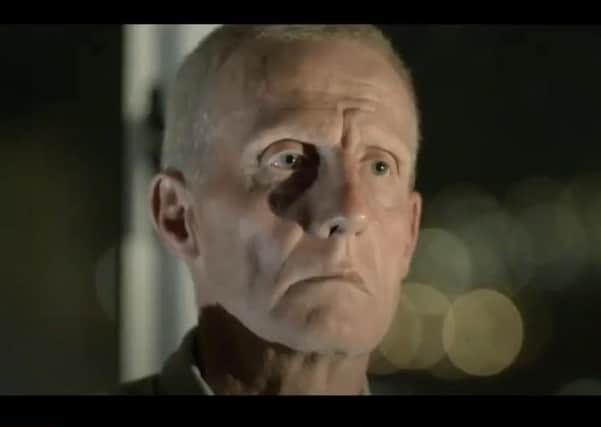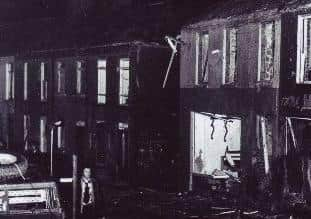Ex-RUC officers’ dismay at RTE platform for killer’s belated ‘collusion’ claims


Sectarian killer John Weir sent shockwaves through the RUC when he confessed to murdering Catholic chemist shop owner William Strathearn in Ahoghill, Co Antrim in 1977.
His arrest and successful conviction came about after senior police suspected that a small number of serving officers in the Armagh area were collaborating with UVF killers operating across the Mid Ulster area.
Advertisement
Hide AdAdvertisement
Hide AdThe shocking revelation led to an unprecedented RUC investigation – bringing together the best detectives from across Northern Ireland in total secrecy to identify and prosecute those involved.


The subsequent investigation led to five officers facing serious charges up to and including murder.
Two of the detectives involved spoke to the News Letter after learning that a major broadcaster was prepared to show the film Unquiet Graves, directed by Sean Murray – son of senior Sinn Fein Strategist and former IRA prisoner Sean ‘Spike’ Murray.
It is being shown on RTE at 9.35pm on Wednesday, September 16.
Advertisement
Hide AdAdvertisement
Hide AdThe film gives a platform to Weir who – among other unsubstantiated claims – alleges British security agents encouraged the UVF to carry out mass murder at a Catholic primary school. Weir has also alleged that a large number of his former RUC colleagues were involved in terrorist activity.
However, the detectives who brought him to justice find it incredible that Weir would have declined to divulge this information – or the claim that he was working under orders from a higher authority within the security forces – at the time to avoid a life prison sentence.
Although Weir was eventually sentenced for the Strathearn murder in 1980, it would be almost 20 years before he would accuse many of his former colleagues of serious criminality.
The claims were first published by journalist Liam Clarke in the Sunday Times in 1999, leading to the Barron Report on the 1974 Barron Report on the Dublin/Monaghan bombings.
Advertisement
Hide AdAdvertisement
Hide Ad“Why didn’t Weir take the opportunity to say all this stuff at Castlereagh because it could have saved his bacon?” one of the ex-officers said.
The former detective sergeant (DS) – who does not wish to be named – said it was unthinkable that Weir would have remained silent if his claims were even partially true.
“At the very least he have been able to do some kind of deal [for a lesser sentence]. That was the opportunity for Weir to use whatever intelligence he had in order to ease his own position.”
The ex-DS described the police operation to bring what was later dubbed the ‘Glenanne Gang’ to justice in 1978 as “the biggest interviewing team ever put together by the RUC”.
Advertisement
Hide AdAdvertisement
Hide AdHe said: “When the briefing came that morning we were told that these were police officers being arrested for murder. You could have knocked us down with a feather.
“All of the interviewers were detective inspector rank and above. I was a DS at that stage and my role was to collate all of the information coming out of the interview rooms. I ran the teams that did that.
“He had the opportunities at the time of his arrest, and when he was being interviewed, to make all of those allegations, but he didn’t.
“I would be satisfied, from my role at Castlereagh, that none of that material he has talked about in his depositions, and in his interview with Liam Clarke, had been talked about. And if it had been, it would have been followed up. There is no question about that.
Advertisement
Hide AdAdvertisement
Hide Ad“I look back on that investigation, and that was one of the most thorough and intense investigations ever to have been carried out at that stage.”
Commenting on the persistent criticism that UVF leader Robin Jackson was not arrested every time intelligence reports linked his name to a particular terrorist attack, the former detective said it was well-known that Jackson always refused to talk unless there was concrete evidence to put to him.
“It was usually a waste of time. All we were doing by arresting Jackson without hard evidence was educating him. Letting him know what intelligence we had and, more importantly, what we didn’t know,” he said.
A second former officer, who was a detective inspector (DI) involved in the investigation has a clear recollection of the events surrounding Weir’s arrest and conviction.
Advertisement
Hide AdAdvertisement
Hide Ad“He was caught up in this ‘loyalist’ thing with [William] McCaughey and [Gary] Armstrong and those boys. They were working in the SPG (Special Patrol Group) and they were seeing policemen being murdered and kidnapped and they took the law into their own hands. That’s basically what they did,” he said.
“Nobody directed them to do it. Had there been then they wouldn’t have been charged and put in jail for life.
“I was part of the investigating team that was responsible for convicting them.
“There was intelligence that McCaughey was involved in this criminal activity, and the intelligence was that he was involved in the kidnapping of [Catholic priest] Fr Hugh Murphy and the murder of William Strathearn.
Advertisement
Hide AdAdvertisement
Hide Ad“I was given a brief to arrest Sergeant Gary Armstrong at his house in Armagh, so we went down to arrest him under the Prevention of Terrorism Act,
The former DI added: “So we went down to his house, and there was a birthday party for one of his children going on in the house at that time and there were about 12 kids there.
“It was quite a traumatic thing, because you were arresting the father in front of all these children...but we arrested Armstrong and took him to Castlereagh.
“McCaughey’s mother and father had also been arrested and they were all in Castlereagh.”
Advertisement
Hide AdAdvertisement
Hide AdMcCaughey’s father, Alexander, pleaded guilty hiding the handgun used to murder Mr Strathearn and given a suspended prison sentence for assisting offenders.
In the 1999 Liam Clarke article, the journalist reported: “Weir, alone of the three members of the group interviewed for this article, seemed to have believed he had outside protection and approval.
“McCaughey said, ‘I knew I had no backing. If I had backing, I would have done far more. I was worried sick about being caught. I knew I would be jailed and I was drinking very heavily through stress.’”
A message from the Editor:
Advertisement
Hide AdAdvertisement
Hide AdThank you for reading this story on our website. While I have your attention, I also have an important request to make of you.
With the coronavirus lockdown having a major impact on many of our advertisers - and consequently the revenue we receive - we are more reliant than ever on you taking out a digital subscription.
Subscribe to newsletter.co.uk and enjoy unlimited access to the best Northern Ireland and UK news and information online and on our app. With a digital subscription, you can read more than 5 articles, see fewer ads, enjoy faster load times, and get access to exclusive newsletters and content. Visit https://www.newsletter.co.uk/subscriptions now to sign up.
Our journalism costs money and we rely on advertising, print and digital revenues to help to support them. By supporting us, we are able to support you in providing trusted, fact-checked content for this website.
Alistair Bushe
Editor